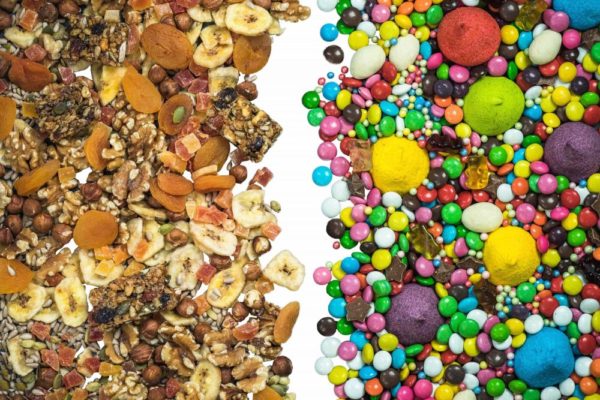Will industry respond to an obesity crisis with embracing calls for regulation of product ranges including confectionery?

Few would argue with the proposition that there’s any real issue with enjoying an occasional confectionery treat or snack, so long as part of a wider balanced diet whether you are a child or adult.
Where the problem has clearly been increasingly over the past decade in particular, has been an increasing number of us are over-indulging, and the pandemic hasn’t necessarily helped on that front at all.
According to figures from UK health authorities, a third of young children are now considered as being obese, which is significantly up on just a generation previous, as many youngsters lead increasingly sedentary lifestyles hooked into computer games and not enjoying the same kinds of privileges of their parents and grandparents in being a lot more able to enjoy more active, outdoor activities as was once the norm for many in a pre X-Box and Playstation age. While that may be simplifying things a little, it’s not far wide of the mark of where we are right now.
So, it’s perhaps not surprising to find that manufacturers are ‘in the dock’ this week following a youth-led study known as Bite Back, examining what they believe to be healthy product ranges, and the results are quite revealing. The nub of it is, that product labelling in many instances doesn’t easily describe how much sugar, salt and fat you’re indulging in, and until that happens, the ability for any of us to make fully informed choices about what we’re eating isn’t going to be possible.
As Confectionery Production has previously reported, the government has been wary of intervening too much for fearing to be a ‘nanny state’ of instructing people on what they can eat, which isn’t a message that plays terribly well anywhere in the world if you stop and think about it. But Prime Minister Boris Johnson’s own hospitalisation last year amid the coronavirus pandemic, which he admitted himself was worsened by his own obesity, has resulted in him advocating at least in part, for some greater initiatives to resolve the situation.
However, as campaigners have long suggested, it’s only really enacting legislation that will actually drive change, as seen by the failed experiment at self regulation organised by Public Health England over the past five years. This asked manufacturers to cut sugar levels by 20% over the course of several years. Very few leading companies were able to make any meaningful impact against that target – where was the incentive for them to do so? Said incentive was seen with the ‘fizzy drinks sugar tax’ of a couple of years ago, which levelled the prospects of fines against those businesses that didn’t significantly reduce sugar in drinks ranges. The positive results speak for themselves.
So will the Bite Back campaign have any influence this time around with regard to food sectors including confectionery? Well, you’ve got to hand it to British celebrity chef Jamie Oliver who started it up two years ago, unless you try and actively drive change, it’s not going to creep up on you by accident. The confectionery and snacks sector are in fairness, constantly trying to respond to consumers’ demands which has been seen by the wealth of wellbeing and healthier-option choices that have sprung up in the past two or three years. So it will be interesting to see whether that present boom in health food is sustained as we move towards what is hopefully the final chapter of the pandemic.
- Neill Barston, Confectionery Production editor.
Keep in touch via email: [email protected] and social media: @sweetsnsavoury or @confectionprod



